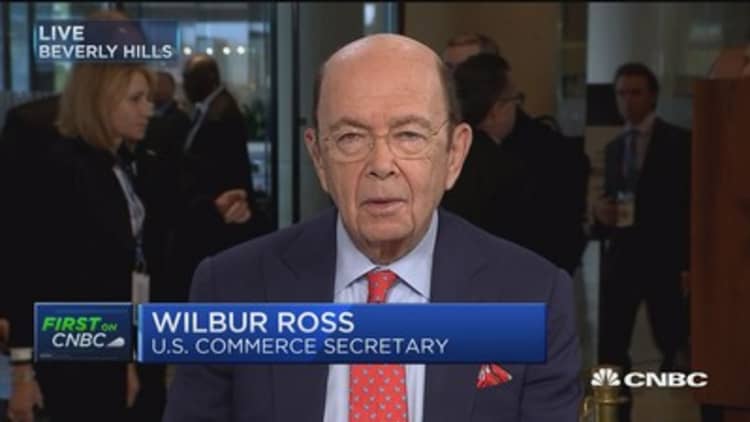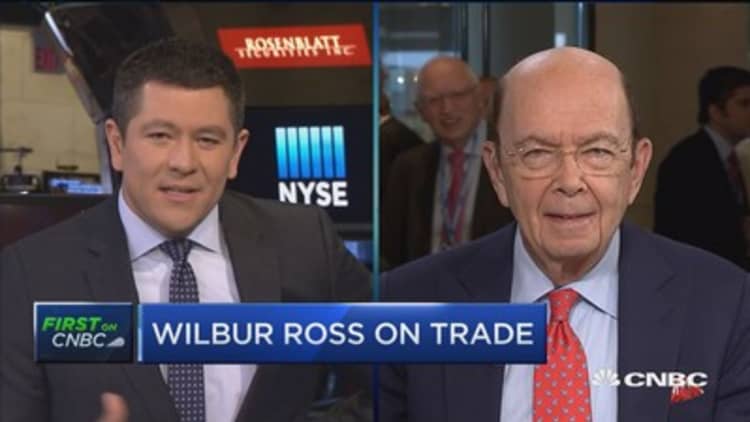
President Donald Trump did not mean to suggest that he'd trade away American jobs to try to persuade China to help the U.S. defuse rising tensions with North Korea, Commerce Secretary Wilbur Ross told CNBC on Monday.
Ross, a billionaire who made his fortune investing in distressed assets, added in an interview with CNBC's "Squawk on the Street" that the U.S. is having productive talks with China on a number of issues.
Over the weekend, Trump told a CBS interviewer that "I believe that [Chinese] President Xi is working to try and resolve a very big problem, for China also. And that's North Korea." He was explaining at the time why he's not pushing China on trade, despite his tough talk on the campaign trail.
"I think that, frankly, North Korea is maybe more important than trade," Trump continued on Sunday. "Trade is very important. But massive warfare with millions, potentially millions of people being killed? That, as we would say, 'trumps' trade."
During CNBC's interview, Ross qualified what he believes Trump meant. "I think what the president was trying to say was we're trying to have an overall constructive relationship with China on a variety of topics — the most pressing of which because he involves human lives is the North Korea situation."
"I don't think he meant to indicate at all that he intends to trade
Ross cites trade progress

Ross also said the White House is waiting for Congress to give the final OK to start the formal process of renegotiating the North American Free Trade Agreement.
Addressing criticism over inaction on NAFTA and other campaign promises before Trump's 100th day in office this past Saturday, Ross said the president can't be blamed when Congress is dragging its feet.
"What we've done in terms of trade is quite a few things," Ross said, running down a litany of measures including last week's push to install a new import tariff on Canadian lumber.
On Thursday, Ross made the case for the lumber
Ross on Tuesday accused Mexico of taking advantage of NAFTA rules — saying Chinese goods dumped south of the border are finding their way to the U.S.
Despite bashing NAFTA repeatedly during the presidential campaign, Trump last week said he's going to try to renegotiate the deal.
The president, while reserving the right to change course, said he agreed not to dump the deal after talking with the leaders of Mexico and Canada in separate telephone calls.
"NAFTA is an ancient treaty," Ross said on CNBC on Monday. "It's decades old. Neither our economy nor the Mexican nor the Canadian economies
Last week, Trump also authorized an investigation into whether a flood of aluminum imports into the U.S. from China and elsewhere jeopardize national security. The move is similar to one earlier in April on imported steel.


